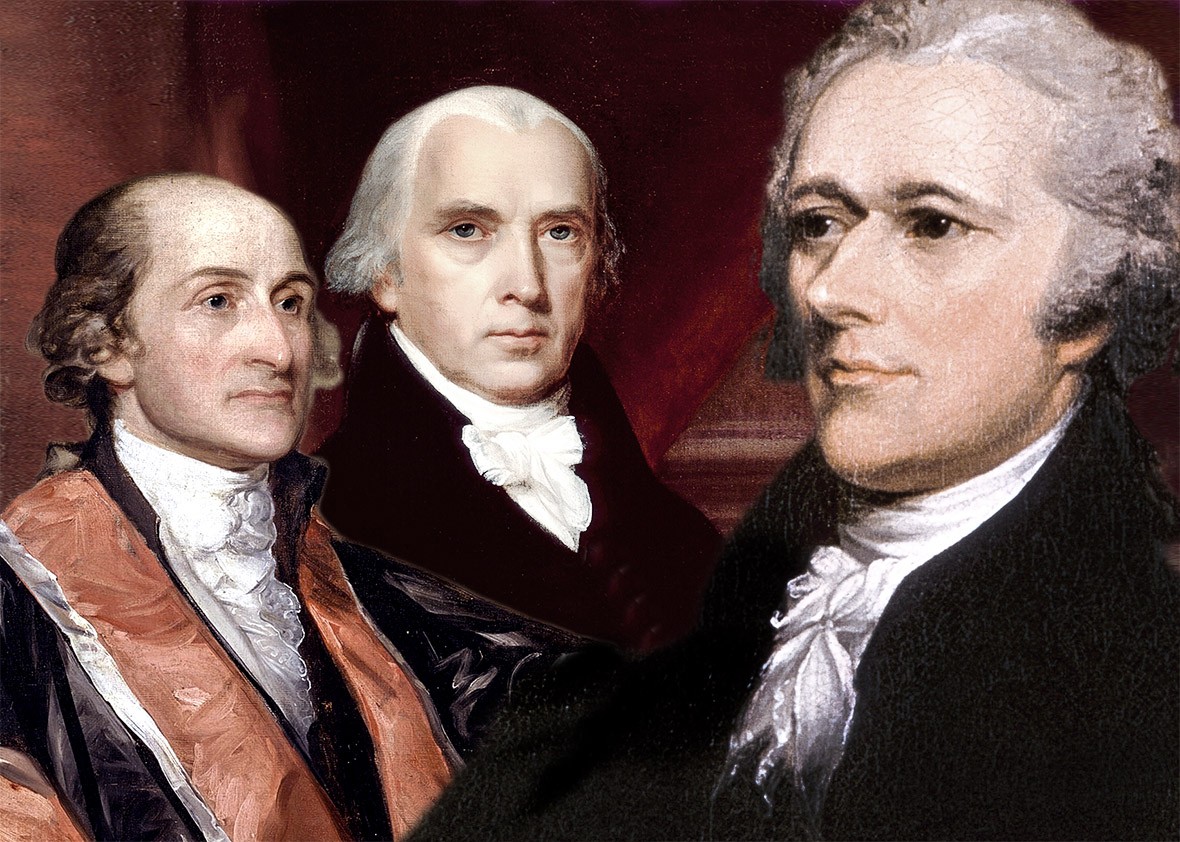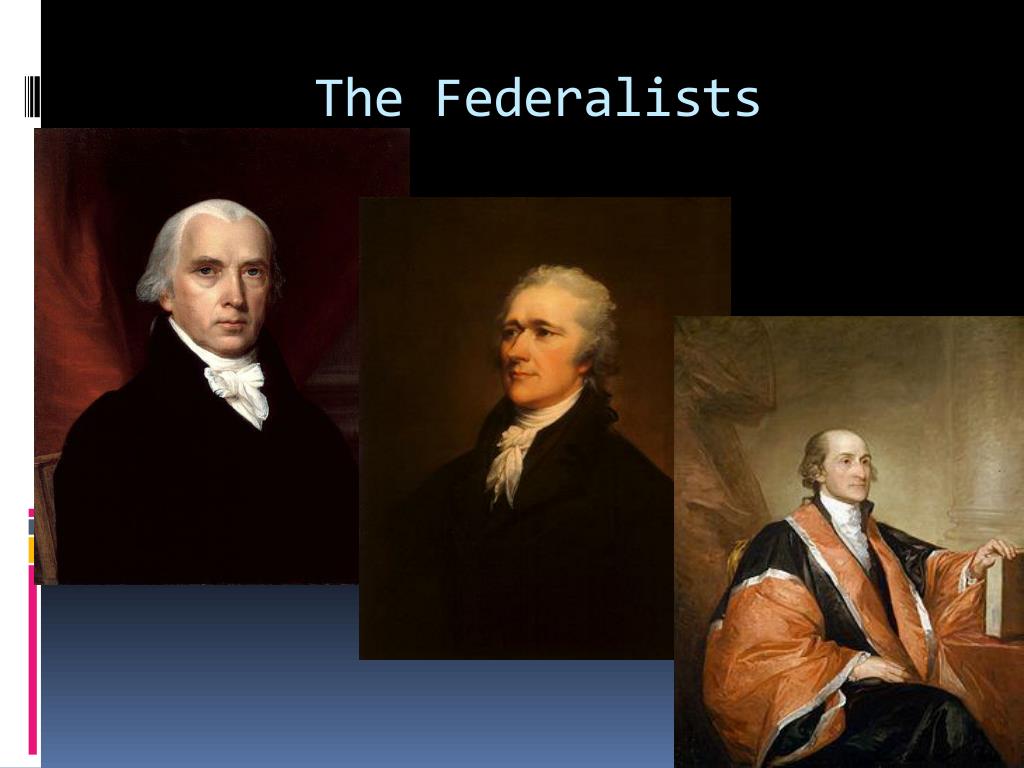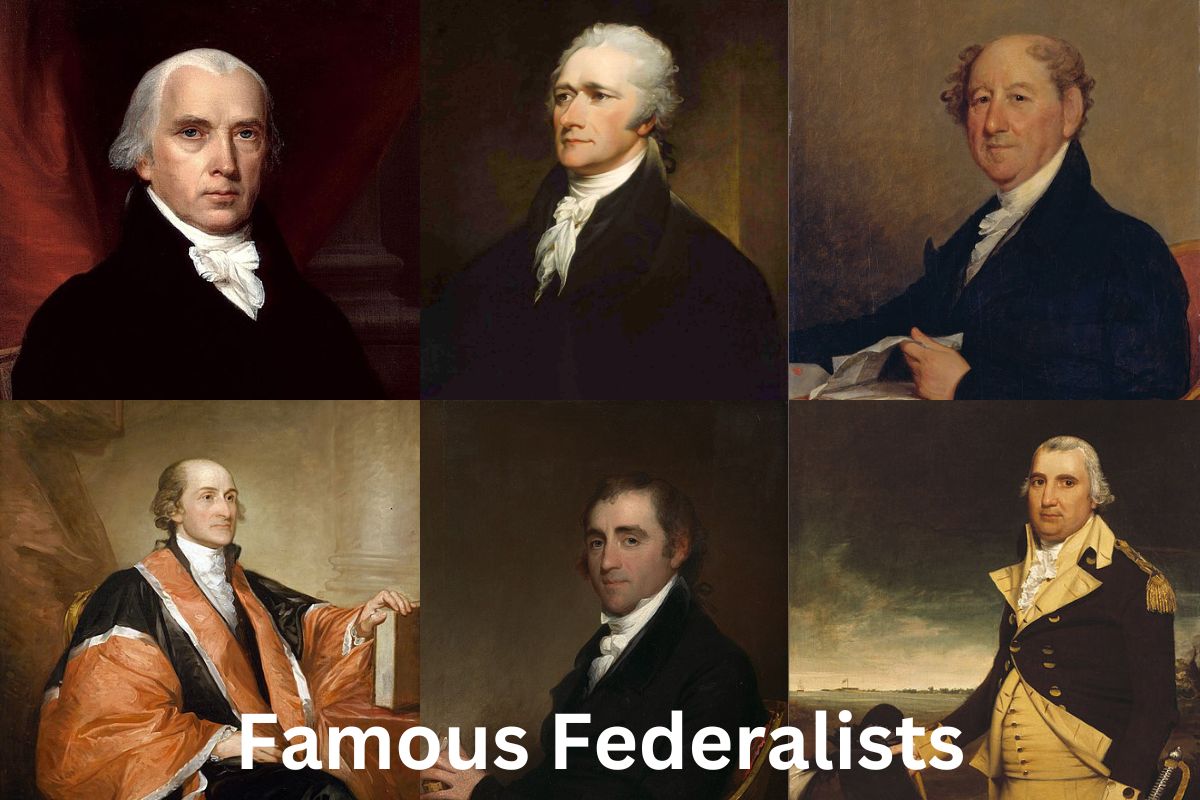Federalist Society Members: Shaping America's Legal Future
In the intricate tapestry of American law and politics, few organizations wield as much quiet yet profound influence as the Federalist Society for Law and Public Policy Studies. Often at the heart of debates concerning judicial appointments, constitutional interpretation, and the very direction of the nation's legal framework, understanding its composition and impact is crucial for any engaged citizen. While a definitive, publicly accessible "Federalist Society members list" remains elusive by design, its influence is anything but hidden, permeating the highest echelons of the judiciary and legal scholarship.
This article delves into the nature of the Federalist Society, exploring its mission, its strategic approach to shaping legal discourse, and the general profile of its members. We will examine why a comprehensive list of its members isn't readily available, discuss the types of individuals who affiliate with the organization, and analyze the significant role it plays in the selection of judges and the evolution of legal thought in the United States. Furthermore, we will clarify the distinction between the Federalist Society and "The Federalist" web magazine, an important point often conflated in public discourse, yet both contributing to the broader conservative intellectual landscape.
Table of Contents
- Understanding the Federalist Society: A Foundation
- The Elusive "Federalist Society Members List": Why It's Not Public
- The Society's Profound Impact on the Judiciary
- Ideological Bedrock: Originalism, Textualism, and Conservative Principles
- Navigating the Broader Conservative Landscape: Distinguishing The Federalist
- Criticisms and Controversies Surrounding the Society
- The Path to Membership and Ongoing Influence
- Conclusion: The Enduring Legacy of the Federalist Society
Understanding the Federalist Society: A Foundation
Founded in 1982 by a group of conservative and libertarian law students at Yale Law School, Harvard Law School, and the University of Chicago Law School, the Federalist Society emerged from a perceived imbalance in legal education. Its founders believed that law schools were overwhelmingly dominated by liberal viewpoints, leaving little room for conservative or libertarian perspectives to be rigorously debated or even heard. Their core mission was, and remains, to foster a robust intellectual environment where conservative and libertarian legal principles can be explored, discussed, and advanced.
- Pornhubcom Iran
- When Did The Iraq Iran War Start
- What Happened With Iran
- Is Gaza In Iran
- Iran In The Bible Prophecy
The Society is not a political advocacy group in the traditional sense, nor does it lobby for specific legislation. Instead, it defines itself as an organization dedicated to promoting a particular understanding of the law: one that emphasizes judicial restraint, originalism (interpreting the Constitution based on its original public meaning), and textualism (interpreting statutes based on their plain text). Its primary activities include sponsoring debates, lectures, and symposia at law schools and professional chapters across the country, providing a platform for legal scholars, judges, and practitioners to engage with these ideas. While the organization doesn't maintain a public "Federalist Society members list," its reach and influence are undeniable, especially within legal academia and the judiciary.
The Elusive "Federalist Society Members List": Why It's Not Public
One of the most frequently asked questions about the organization pertains to its membership: "Is there a public Federalist Society members list?" The simple answer is no, not in the comprehensive, publicly accessible way one might imagine for a political party or a professional association. The Federalist Society maintains that its membership information is private, a common practice for many non-profit organizations and professional groups. This privacy policy serves several purposes, including protecting the privacy of its members and preventing potential harassment or pressure.
The Society operates through a network of student chapters at nearly every accredited law school in the United States, as well as lawyer chapters in major cities. Membership is typically open to law students, legal professionals, and academics who align with the Society's broad principles of limited government, individual liberty, and the rule of law. While certain high-profile individuals openly acknowledge their affiliation, and many judges and political appointees are known to have been members, there is no centralized, public directory detailing every single individual who has ever joined or is currently a member. This lack of a public "Federalist Society members list" often fuels speculation and, at times, conspiracy theories about the organization's true reach, but it is largely consistent with the practices of many private intellectual societies.
Membership Demographics and Influence
While a specific Federalist Society members list isn't available, the profile of its members is well-understood through observation of its events, publications, and the career paths of its prominent affiliates. The Society draws heavily from:
- Judges: A significant number of federal and state judges, including a supermajority of current U.S. Supreme Court justices, have been active members or speakers at Federalist Society events. Their judicial philosophies often align with the Society's emphasis on originalism and textualism.
- Law Professors and Academics: Many leading conservative and libertarian legal scholars are members, contributing to the intellectual discourse through publications, conferences, and teaching. They shape the minds of future lawyers and judges.
- Practicing Attorneys: Lawyers in private practice, government service, and public interest organizations constitute a large portion of the membership. They often bring the Society's principles into their legal work and advocacy.
- Government Officials: Numerous high-ranking officials in executive branch positions, particularly within the Department of Justice, have ties to the Federalist Society. Their involvement ensures that conservative legal principles influence policy and enforcement.
- Law Students: The Society's student chapters are crucial for cultivating the next generation of conservative and libertarian legal minds, providing networking opportunities and intellectual forums.
The collective influence of these individuals, even without a published Federalist Society members list, is immense. They form a robust network that shares a common legal philosophy and often supports each other's professional advancement, particularly in the realm of judicial appointments.
The Society's Profound Impact on the Judiciary
Perhaps the most significant and widely recognized impact of the Federalist Society is its role in shaping the federal judiciary. For decades, the organization has served as a key pipeline for identifying, vetting, and promoting conservative legal talent for judicial appointments, especially during Republican administrations. Its rigorous intellectual debates and extensive network allow it to identify individuals who adhere to its core judicial philosophies.
During the presidencies of George W. Bush and Donald Trump, the Federalist Society played an explicit and often decisive role in the selection of judicial nominees. For instance, during the Trump administration, it was widely reported that the White House consulted extensively with the Society regarding potential Supreme Court nominees, effectively outsourcing a significant part of the vetting process. This collaboration led to the appointment of multiple Supreme Court justices and hundreds of federal appellate and district court judges who align with the Society's originalist and textualist interpretations of the law. The long-term implications of these appointments for American jurisprudence are profound, influencing everything from civil liberties and regulatory law to the balance of power among government branches. This influence underscores why understanding the Federalist Society, even without a specific Federalist Society members list, is critical for comprehending the direction of American law.
Judicial Philosophy and Constitutional Interpretation
The bedrock of the Federalist Society's influence on the judiciary lies in its promotion of specific judicial philosophies. At its core, the Society champions:
- Originalism: The belief that the Constitution should be interpreted according to the original public meaning of its text at the time it was adopted. This approach seeks to limit judicial discretion and prevent judges from imposing their own policy preferences.
- Textualism: Similar to originalism but applied to statutes, textualism holds that laws should be interpreted based on the plain meaning of their words, rather than legislative intent or policy goals.
- Judicial Restraint: The idea that judges should exercise caution in overturning laws passed by democratically elected legislatures and should defer to the political branches unless a clear constitutional violation exists.
- Limited Government: A foundational principle that government power should be constrained, and individual liberty should be maximized. This often translates into skepticism about federal regulatory power and a preference for states' rights.
These philosophies, rigorously debated and refined within the Society's forums, are not merely academic exercises. They translate directly into judicial decisions that shape the lives of Americans. For example, a justice who adheres strictly to originalism might interpret the Commerce Clause of the Constitution more narrowly, potentially limiting Congress's power to regulate economic activity, or interpret the First Amendment's free speech protections in ways that prioritize certain forms of expression, such as religious freedom or political speech, as highlighted by concerns about "Government officials' 'attack' on free speech is 'worse' than it's been in years," a sentiment often echoed in conservative legal circles.
Ideological Bedrock: Originalism, Textualism, and Conservative Principles
The Federalist Society's intellectual foundation is deeply rooted in conservative and libertarian principles, particularly those emphasizing individual liberty, limited government, and the rule of law. This aligns with the broader conservative movement's ethos, often encapsulated by phrases like "Be lovers of freedom and anxious for the fray." This spirit suggests a readiness to engage in intellectual and legal battles to defend what they perceive as fundamental constitutional principles against perceived overreach or progressive interpretations.
The Society's members, even without a public Federalist Society members list, are united by a shared belief that the judiciary's role is to interpret the law as it is written, not to create new law or to act as a super-legislature. This stance often leads to critiques of judicial activism and a desire to roll back what they see as expansive interpretations of constitutional rights or governmental powers. Their focus on the original meaning of the Constitution and the plain text of statutes is a direct response to what they view as a tendency by some judges to infuse their personal policy preferences into legal rulings. This intellectual rigor and commitment to a specific legal methodology are central to the Society's appeal and its effectiveness in shaping legal discourse and judicial appointments.
Navigating the Broader Conservative Landscape: Distinguishing The Federalist
It is crucial to clarify a common point of confusion: the Federalist Society is distinct from "The Federalist" web magazine. While both operate within the conservative intellectual sphere and share some ideological common ground, they are separate entities with different missions and structures.
- The Federalist Society: A legal organization focused on promoting conservative and libertarian legal principles, fostering intellectual debate within law schools and among legal professionals, and influencing judicial appointments. Its focus is primarily on law and policy from a constitutionalist perspective.
- The Federalist (web magazine): As described in the provided data, "The Federalist is a web magazine focused on culture, politics, and religion." It is a media outlet that publishes articles and commentary on current events, social issues, and political analysis from a conservative viewpoint. Its scope is much broader than just law, encompassing a wide array of cultural and political topics.
While members of the Federalist Society might read or even contribute to "The Federalist" web magazine, and both entities reflect aspects of the contemporary conservative movement, they are not interchangeable. For instance, "The Federalist" web magazine frequently engages in direct political commentary, such as when it "called out Biden’s decline when legacy media wouldn’t" or when "Federalist senior contributor Chuck DeVore called out Vice President Kamala Harris for being complicit in helping the administration hide Biden’s decline in the months leading up to" specific events. These are journalistic and political actions, distinct from the Federalist Society's focus on legal theory and judicial selection. However, the themes discussed by "The Federalist" – such as concerns over government overreach, free speech, and the direction of political leadership – resonate deeply with the core principles of limited government and individual liberty that the Federalist Society champions in the legal realm. Both contribute to the broader conservative ecosystem, but in different capacities.
Criticisms and Controversies Surrounding the Society
Despite its significant influence, or perhaps precisely because of it, the Federalist Society is not without its critics. Opponents often argue that the Society is a secretive, ideological organization that seeks to impose a narrow, conservative agenda on the judiciary, rather than promoting neutral legal scholarship. Concerns are frequently raised about:
- Lack of Transparency: The absence of a public Federalist Society members list and its private vetting processes are often cited as evidence of a lack of transparency, leading to accusations of operating behind closed doors to influence public institutions.
- Judicial Homogeneity: Critics contend that the Society's influence leads to a judiciary that is ideologically homogeneous, potentially stifling diverse legal perspectives and interpretations.
- Political Partisanship: Despite its claims of being non-political, the Society is often seen as a highly partisan organization, effectively serving as the legal arm of the Republican Party, especially in judicial appointments.
- Impact on Rights: Progressive groups worry that the Society's originalist and textualist approaches could lead to the erosion of established rights, particularly in areas like reproductive rights, LGBTQ+ rights, and environmental protections, by reinterpreting foundational legal precedents.
These criticisms highlight the high stakes involved in the Federalist Society's work. Its impact on the composition and jurisprudence of the federal courts directly affects the lives of millions, making it a critical subject of public scrutiny and debate. The Society, for its part, maintains that it is simply providing a necessary counterweight to dominant liberal views in legal education and practice, ensuring a robust marketplace of ideas.
The Path to Membership and Ongoing Influence
Becoming a member of the Federalist Society typically involves joining a student chapter in law school or a lawyer chapter after graduation. The process is generally straightforward, often requiring a nominal fee and an agreement to uphold the Society's principles. For students, it offers a network of like-minded peers, access to prominent speakers, and opportunities to engage in legal debates. For legal professionals, it provides a forum for continued intellectual engagement, professional networking, and a platform to contribute to conservative legal thought.
The Society's influence is maintained through several key mechanisms:
- Networking: Its extensive network connects conservative legal professionals at all stages of their careers, facilitating mentorship and career advancement, especially into judicial and governmental roles.
- Intellectual Production: Through its events, publications, and affiliated scholars, the Society continually produces and refines conservative legal arguments, influencing academic discourse and judicial opinions.
- Judicial Vetting: Its continued role in the judicial selection process, particularly for federal appointments, ensures that judges aligned with its philosophy are considered for the bench.
- Public Education: By hosting public debates and inviting prominent figures, the Society contributes to broader public understanding and debate about legal issues from a conservative perspective.
Even without a publicly available Federalist Society members list, the organization's strategic approach to cultivating and deploying legal talent has made it an unparalleled force in shaping the American legal landscape for decades to come. Its impact is not just on who sits on the bench, but also on how legal questions are framed, debated, and ultimately decided.
Conclusion: The Enduring Legacy of the Federalist Society
The Federalist Society stands as a testament to the power of intellectual organization and strategic influence within the legal profession. While the notion of a comprehensive "Federalist Society members list" remains largely private, its impact is anything but secret. From its humble beginnings in law school classrooms to its current position as a formidable force in judicial selection and constitutional interpretation, the Society has fundamentally reshaped the American judiciary and legal discourse.
Its commitment to originalism, textualism, and limited government has infused conservative principles into the very fabric of legal thought, influencing countless court decisions and policy debates. As we've seen, while distinct from "The Federalist" web magazine, both contribute to a vibrant, often contentious, conservative intellectual landscape that seeks to challenge prevailing narratives and champion specific interpretations of freedom and governance. Understanding the Federalist Society is not merely an academic exercise; it is essential for comprehending the past, present, and future trajectory of American law and the enduring debates over the Constitution's meaning. We encourage you to delve deeper into the specific judicial decisions and legal arguments that have emerged from the philosophies championed by the Federalist Society to fully grasp its profound and lasting legacy. Share your thoughts on the Society's influence in the comments below, or explore other articles on our site discussing the evolving landscape of American law and politics.
- Iran Nuclear Program Threat
- Iran In The Bible Prophecy
- Iran Hostage Crisis Carter
- Parsian Evin Hotel Tehran Iran
- Iran Before

The Federalist Papers: Federalist No. 2 and the immigration debate.

PPT - The Federalists PowerPoint Presentation, free download - ID:2797529

Federalists - 10 Most Famous - Have Fun With History